The Union flag flaps in the wind in front of one of the faces of the Great Clock atop the landmark Elizabeth Tower that houses Big Ben at the Houses of Parliament in central London on 26 September, 2014. AFP Photo: Justin Tallis
2014年9月27日 星期六
George Cruikshank 1792-1878
George Cruikshank - Wikipedia, the free encyclopedia
http://en.wikipedia.org/wiki/George_Cruikshank
Born #onthisday in 1792: caricaturist George Cruikshank. Here he satirises the English court http://ow.ly/BQMpx
2014年9月24日 星期三
BBC TV licence 刑事爭議
Each week, 3,500 people are hauled through the courts for failing to buy a TV licence. Last year, 200,000 were prosecuted and more than 50 were sent to prison. Many simply can’t afford the annual £145.50 cost. Should those who can’t afford to pay their bills be criminalised in this way? Amelia Gentleman reports
Amelia Gentleman: Almost 200,000 people were prosecuted last year for...
THEGUARDIAN.COM|由 AMELIA GENTLEMAN 上傳
A day in court for non-payment of the TV licence: ‘What do they want us to do, kill ourselves?’
Almost 200,000 people were prosecuted last year for failing to buy a television licence. Should those who can’t afford to pay their bills be criminalised in this way?
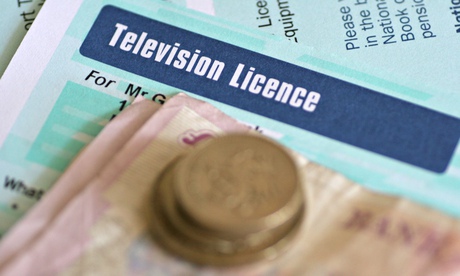
There is a lot of anger simmering around the crowded stairwell outside court number six, where 158 court hearings are listed for non-payment of television licence fees. About 20 people have turned up at Highbury Corner magistrates court, north London, to contest the imposition of a fine; the start time of 10am has arrived and passed, and nothing has happened. The court clerk comes to hand out means-testing sheets, so that defendants on a low income can request a reduction in their fine. Since almost everyone here is on a low income, they crowd around to take the sheets. There’s a call for a Turkish interpreter.
One man has brought his television with him, thinking that handing over the set will be the simplest way of solving the problem, but he has been prevented from bringing it up to the courtroom by security and has had to leave it with guards downstairs.
A week after the culture secretary, Sajid Javid, confirmed a review of the law that makes non-payment of your television licence a criminal offence(unlike, say, payment of your electricity bill), magistrates courts are still ploughing through large numbers of prosecutions, at a rate of about 3,500 a week. Javid said almost 200,000 people were prosecuted in 2012-13 for failing to buy a TV licence, which costs £145.50 a year. “More than 50 were sent to prison. When over 10% of magistrates court cases concern this one offence, you have to ask whether the current system is really working,” he said.
James Purnell, BBC director of strategy and digital, and a former Labour culture secretary, questioned the 10% figure, and said he believed the number was much lower; he said licence fee cases took up just 0.3% of court time because most were processed very quickly.
If the waiting defendants are representative of the 5% of households who do not pay their licence fees every year, then most are struggling financially and there appears to be a lot of confusion about what the fee is for and why it has to be paid.
“Can I ask how long I’m going to have to wait?” the most agitated defendant asks the clerk.
“All I can say is that there are 117 people on the list this morning.”
“I’ve been waiting since 10, and I’m No 71.”
“That’s not down to me.”
“I don’t care who it’s down to,” he says, and begins to tell the waiting group how difficult he is finding it to pay his bills.
“Since last year, when I started paying council tax and the bedroom tax, it’s been very hard. The BBC was paying Jim’ll Fix It millions, and we have to pay the licence fee. We’re the ones paying through the nose.”
“Having a go at me isn’t going to help,” the court clerk says.
“I’m not having a go at you.”
A boy of about six, sitting on the floor and resting his head on his mother’s knee, watches, fascinated. A woman in her 40s pulls a Bible out of a crumpled plastic bag, and begins to annotate it furiously. Other people start to articulate their confusion and dissatisfaction with the system.
“If you have a black-and-white telly, do you have to have a TV licence?”
“If you watch TV on your computer, do you have to pay for a licence?”
“If you’ve already paid for Sky, why do you have to pay for a licence? They keep harassing me on the phone, telling me to pay.”
“Why are we bringing people to court over TV licences? It doesn’t make sense.”
A young woman, her blond hair plaited on the side, says she is feeling very nervous. “It’s the first time I’ve been to court, and it’s for a TV licence. It is a bit scary,” she says as she goes into the court room.
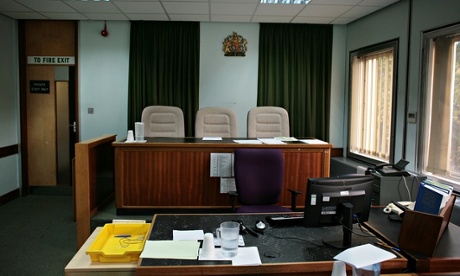
Inside, there are two magistrates, the court’s legal adviser, a court list clerk and the Crown Prosecution Service prosecutor, Chris Christiou, who runs through the bare details of the first case, using a clipped formula that he will repeat more than 150 times during the day.
“Between 1 December 2013 and 31 December 2013 you used a colour television receiver without a licence at this address. Do you plead guilty or not guilty?”
She pleads guilty, an embarrassed red flush creeping up her face. “I would like to apologise for the offence,” she says. She tells the court she is a single mother on benefits and the magistrate decides to reduce the court costs from £120 to £50; she also has to pay a £36 fine, reduced by a third in recognition of her guilty plea, and a £20 victim surcharge (which goes to paying for victim support groups). She explains she doesn’t have the money to pay the £106 fine immediately and a payment plan that breaks it up into £5 weekly payments is arranged. She leaves, in a hurry, anxious to be back in time to pick up her son from nursery.
The second defendant steps up and pleads: “Guilty and not guilty.”
“It has to be one or the other,” the clerk says.
“Guilty then,” she decides. She explains that she has always paid for the licence by direct debit, but a couple of payments this year didn’t go through because she had no money in her bank account. “I can’t read and I can’t write, so I couldn’t read the letters I was sent,” she says. She is also fined £106.
She is followed by a man who is unemployed, receiving sickness benefits, who explains he got into debt last year, once he started paying the bedroom tax and the new council tax payments, brought in for those on a minimum income last April.
“I rang the BBC and asked them to hang on and I will pay, but they wanted it here and now,” he says. He is 46, but his voice cracks, on the edge of tears. “It wasn’t because I didn’t want to pay, it was because I couldn’t pay.” He said he felt harassed by the number of calls from the TV licensing authority asking him to pay, fielding as many as four a week. He says he has mental-health problems, which is why he recently stopped working. “I’m already paying these extra things I can’t afford. What do they want us to do, kill ourselves?”
In view of his financial situation, the magistrate waives the court costs, and gives him a total fine of £55. The defendant asks if he can pay it back at a rate of £2.50 a week, because he doesn’t think he can afford any more.
Next is a woman, also on sickness benefits, who is awarded a £55 fine; she says she needs to think about what she can take out of her weekly budget before working out how she can repay the money. She is told that she needs, in addition, to get a new licence, but she says she won’t buy one. “I plan to get rid of my TV. I won’t be able to afford it.” The court clerk explains how she should go about getting her address deregistered, so that she doesn’t get any more letters. She leaves, profusely grateful, backing out of the room, muttering deferentially: “Thank you sir, thank you, thank you for your kindness.”
Laws on television licensing were last updated in 2004 before high-speed internet made it easy to watch television on your computer, iPads and mobiles, and the regulations are a little confusing. If you only stream television programmes online after they have been broadcast, through services such as BBC iPlayer or 4oD, then you don’t need a licence, but if you watch or record live television, then you do. BBC director-general Tony Hall said earlier this year that “well under 2% of households consume only on-demand TV content”. Most people in court are not here because of confusion about the rules, but simply because the licence fee was an expense they say they found hard to afford.
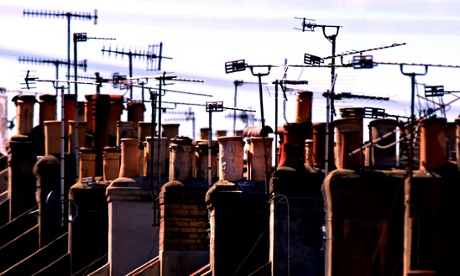
You cannot go to prison for non-payment of your licence fee, but you can be jailed for not paying a fine imposed as punishment for not paying for a licence, and in 2012, 50 people were imprisoned, up from 30 in 2009. Of those, 49 were given a sentence of less than three months; one person was given a sentence of somewhere between three and six months.
If convicted, you will get a criminal record, but it isn’t one that you have to disclose for most purposes, and it will not show up on basic criminal record checks, the court’s legal adviser explains. It’s only if you go for an advanced criminal record check (when applying for work as a lawyer, for example) that it shows up.
In 2012, TV Licensing (an arm of the BBC) subcontracted Capita to handle the “collection, administration and enforcement” services for eight years, and will pay around £560m for this. Mostly, TV Licensing relies on its national database, which highlights unlicensed addresses. Officials call, write to and then visit these addresses. “We give people every opportunity to pay and always prefer people to pay rather than risk prosecution,” a spokesman says.
There has always been some uncertainty (or outright suspicion) about the competence of television licence detection vans, made famous in the 1970s, with adverts showing what may, at the time, have appeared to be state-of-the-art equipment, allowing inspectors to drive around with whirring green radar displays alerting them to the presence of unlicensed homes.
“There’s a TV set on at No 5. It’s in the front room,” one moustachioed inspector says in a menacing public information advertisement. “And they’re watching Columbo!” TV Licensing officials don’t reveal much about their modern equipment, but say detection is only used as “a last resort”.
When TV licence inspectors visited the next defendant at home, in April, and found his family watching an unlicensed television, he asked them to take it away but they refused. “I told them to take the machine. It causes me too much stress with my children, and it’s causing me a lot of stress – the news just shows people killing each other, wars. I’ve brought it here today. I’m not taking it back with me.”
He flourishes a deposit slip from the office downstairs, where he has left the set, but the prosecutor pushes it back to him. “It’s downstairs. I’m not taking it away with me,” the man says. The magistrate tells him that this is not a matter for the court.
One woman has travelled down from Northampton with her husband and child to contest a fine that has been imposed on her, but which appears to relate to someone with a different date of birth. The case against her is withdrawn instantly, but she complains that the process has caused her substantial psychological stress. The magistrate tells her that this is not an issue he can help with and tells her to seek legal advice elsewhere. He discreetly pulls up his cuff to look at his watch.
The morning stretches on and the court moves on to the cases where people have not turned up to the summons. In their absence, the prosecutor does manage to run through each case very swiftly, laying down the details in about 15 seconds, checking to see if the inspector’s report reveals whether the individual is employed or not. At least half are unemployed or on benefits.
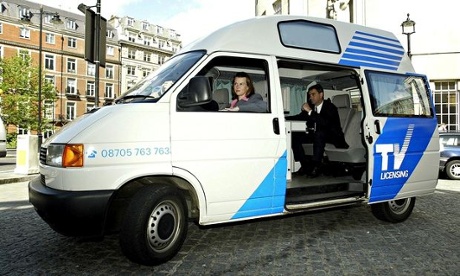
A few people send letters, giving a plea, and explaining why they did not buy a licence, and why they have not turned up. The court’s legal adviser reads them out loud. “I have debt collectors on my case. I have one son, my only child, and I am not able to buy him clothes because I don’t have enough funds,” he reads out, neutral in tone, hurrying through the long, handwritten letter. “I’ve been struggling on benefits. I apologise to the court unreservedly,” another says. “My partner paid for five instalments, and then he stopped, but he didn’t tell me he had stopped,” one woman writes. “I don’t watch the television much,” another states, hopeful that this will help. There is a letter of apology from a 70-year-old woman; free licences are given only to over-75s.
The magistrates decide what level of fine to hand down, according to what’s known about their finances, and the nature of the offence. For some people, who have previous convictions for non-payment, the fine and costs rise to £400. TV licensing rules say the maximum fine is £1,000. In a moment of apparent unease about the process, the magistrate asks the legal adviser: “When they get these letters with large sums of money, is it spelled out how they can appeal?”
“I don’t think so,” the adviser says.
“But they can appeal,” the magistrate insists.
Only around 30 of the 117 cases heard in the morning have either written or appeared in person to enter a plea; the rest have been fined in their absence.
Naturally, the debate about television licensing is politically charged, with some Conservative MPs, who dislike the notion of a state-funded broadcaster, finding unexpected reserves of compassion for the way the current system criminalises “some of the poorest in our society”. But cross-party sympathy for the idea of decriminalisation is emerging.
There is nervousness at the BBC over what the financial implications of that decision might be. The licence fee provided £3,726m worth of income for the BBC last year, the biggest chunk of its total income of £5,066m (with the rest made up by commercial activities, mainly BBC Worldwide). A BBC spokesman says: “This is an important issue and the review must be thorough and not rushed. Licence-fee evasion is low, which maximises investment in the programmes and services that audiences love. Changing the system could lead to higher evasion.”
A TV Licensing spokesman says: “We do everything we can to help people buy a licence and provide many ways to pay, including small weekly cash payments. However, we do enforce the law against evaders on behalf of those who pay. In 2013/14, licence fee evasion cost the BBC between £196m and £235m in lost revenue, so it’s important we minimise evasion to ensure as much money as possible goes towards BBC programmes and services.”
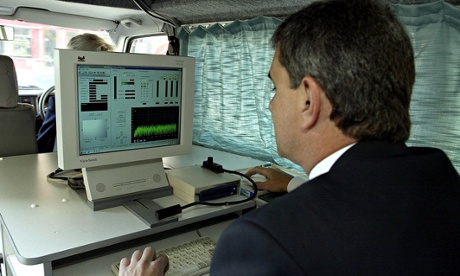
Ms Smyth, 45, from north London (who asks that her first name is not printed), arrives for the afternoon session, and says she no longer has a television, because the court summons has made her realise that it is a luxury she cannot allow herself. For the past 10 years she has been going to the post office every fortnight, to make a TV licence payment and pay other bills, but in the last year, she has missed a few payments, and was visited by an inspector. Inspectors often make calls to the street where she lives, and she knows neighbours who hide their televisions in cupboards when they see the van.
“I have debts, and other bills pile up that seem more of a priority,” she says. She is also on sickness benefits,
She is supported by Simon, a volunteer from the Single Homelessness Project, which works with tenants to stop them from being evicted because of arrears and debts, who notes that since council tax payments were introduced, more tenants have been having trouble paying TV licences. “People don’t see it as a priority – not ahead of gas, electricity and council tax bills.”
The prospect of her court appearance has been troubling her for weeks.
“I am sweating,” she says, as she waits to be called. “It’s not nice knowing you have this hanging over you.”
2014年9月23日 星期二
Britain's Betrayal of Hong Kong 李克強幾個月前到倫敦搞定英國?
李克強幾個月前到倫敦搞定英國?
 ENLARGE
ENLARGE
Britain's Betrayal of Hong Kong
London fails to call Beijing on its broken promises of autonomy.
 ENLARGE
ENLARGE
Students take part in a rally at Chinese University of Hong Kong on Monday.GETTY IMAGES
A political showdown looms in Hong Kong. Beijing has stripped the city of the high degree of autonomy it promised in a 1984 treaty with the United Kingdom. Local residents are preparing a campaign of civil disobedience in protest. Yet London has failed to express even mild criticism of Beijing's treaty violation.
The people of Hong Kong overwhelmingly want to elect their next Chief Executive, a reform that until a month ago seemed within reach. On Monday university and secondary students began a week-long boycott of classes to demonstrate for democracy. A new poll from Chinese University shows that one-fifth of the population is considering emigration because of the city's uncertain future.
This turmoil is the result of Beijing's shock decision at the end of August to rig the 2017 Chief Executive election with the most antidemocratic system tabled by its local supporters. Only politicians who receive majority support from a committee packed with Beijing's supporters will be allowed to run.
Opinion Video
Editorial Page Writer David Feith on what the residents of Hong Kong need to do to preserve their freedoms. Photo credit: Getty Images.
The Communist Party's response to criticism is that any election conducted with universal suffrage is a step forward. The Sino-British Joint Declaration did not explicitly promise democracy, and the British didn't introduce elections for legislators until five years before their departure. So it is the "rankest hypocrisy," in the words of the Chinese ambassador to the U.K., for Chris Patten, the last colonial governor, to claim London has a moral responsibility to speak up for Hong Kong.
Yet the desire for greater democracy was the critical issue facing Hong Kong long before the 1997 handover. Beginning in 1985, a drafting committee of local residents and Chinese officials created a constitutional document, the Basic Law, reflecting the Sino-British Joint Declaration's promise of self-government. "How Hong Kong develops its democracy in the future is completely within the sphere of the autonomy of Hong Kong," Lu Ping, China's top official on Hong Kong matters, promised in the People's Daily in March 1993. "The central government will not interfere."
That's a promise Beijing broke. In 2004 it reinterpreted the Basic Law to mean that Hong Kong could not initiate political reform without its prior approval. In 2007 it ruled out elections in 2012. Last month's decree mandates a vetting system similar to the kind of "democracy" that exists in Iran, where thousands of candidates are routinely disqualified by the regime.
As a signatory to the Joint Declaration, only the U.K. has the legal standing to protest Beijing's broken promises. So how did London respond? For four days, the Foreign Office said nothing. Finally it put out a statement even more abject than silence: "We welcome the confirmation that China's objective is for the election of Hong Kong's Chief Executive through universal suffrage." Martin Lee, Hong Kong's doughtiest fighter for democracy, rightly summed up London's attitude as "kowtowing to Beijing for 30 pieces of silver."
It's true Britain's power to influence developments in Hong Kong is limited. Yet Beijing's xenophobic bluster shows that it still fears a principled statement from London to defend the territory's autonomy. Chinese media routinely accuse pro-democracy politicians of being funded by foreign "black money"—even as Beijing pumps money into local puppet groups.
When Margaret Thatcher agreed to return Hong Kong to Chinese sovereignty, she defended the decision on grounds that the U.K. would hold Beijing to its treaty commitments. Count that as one more Thatcherite legacy her successors have failed to honor.
訂閱:
意見 (Atom)






